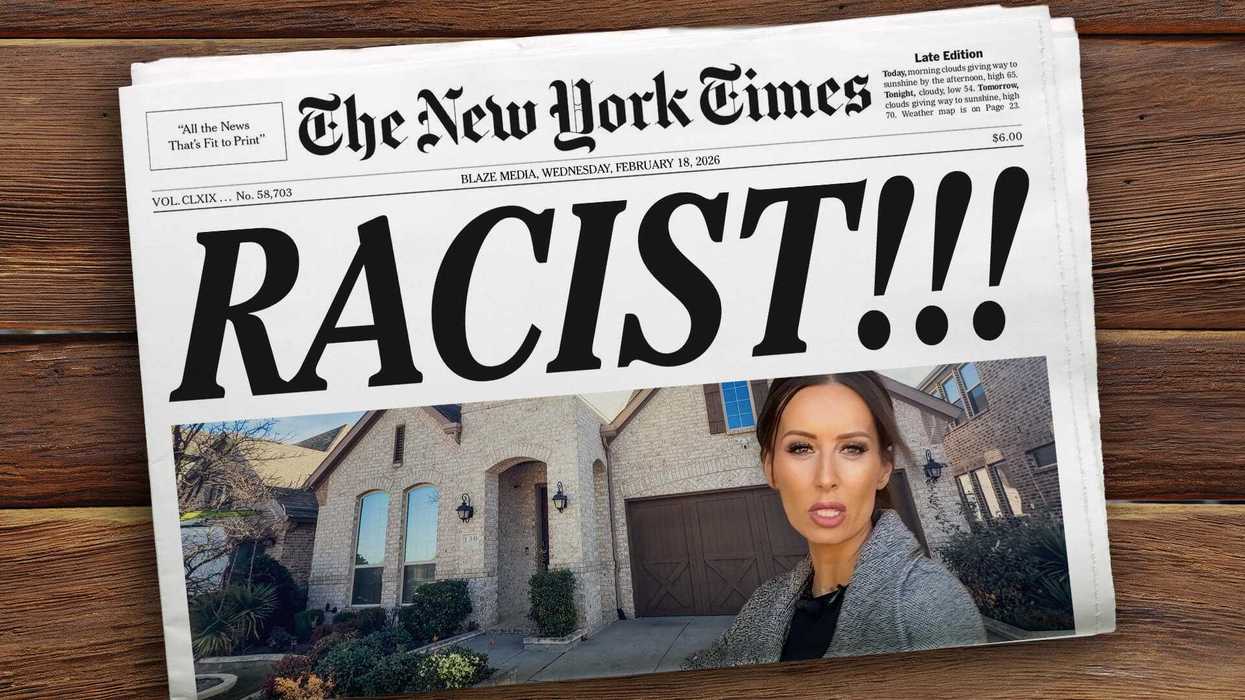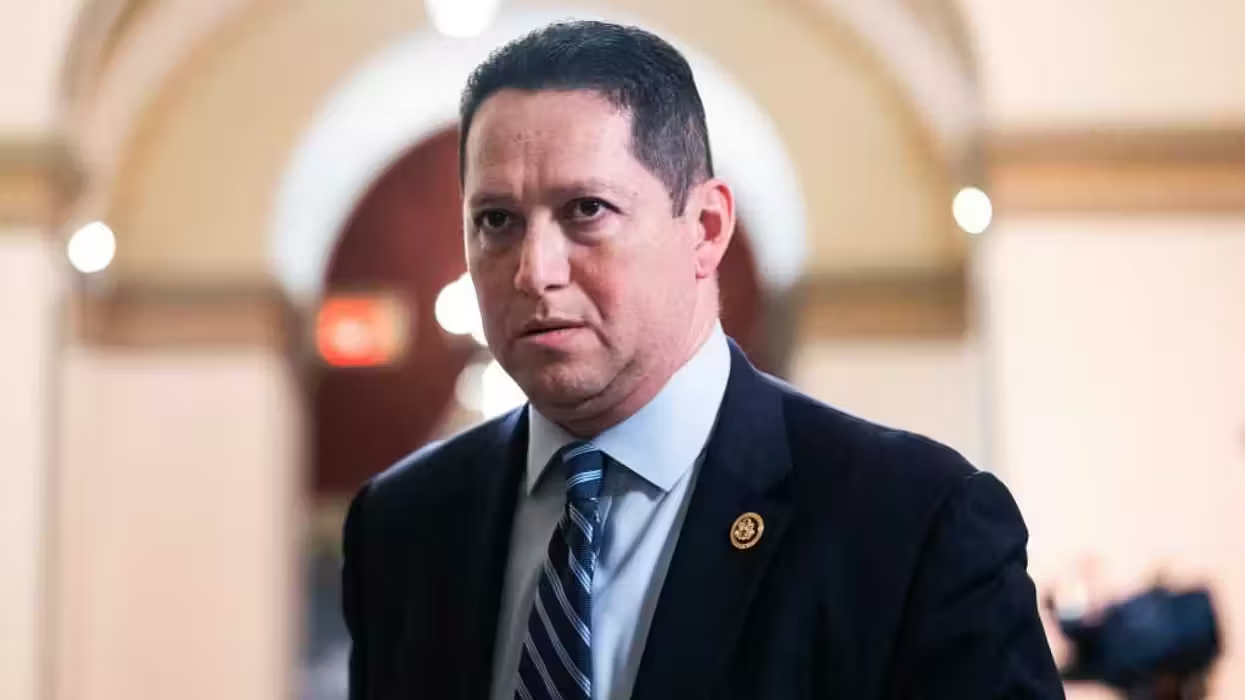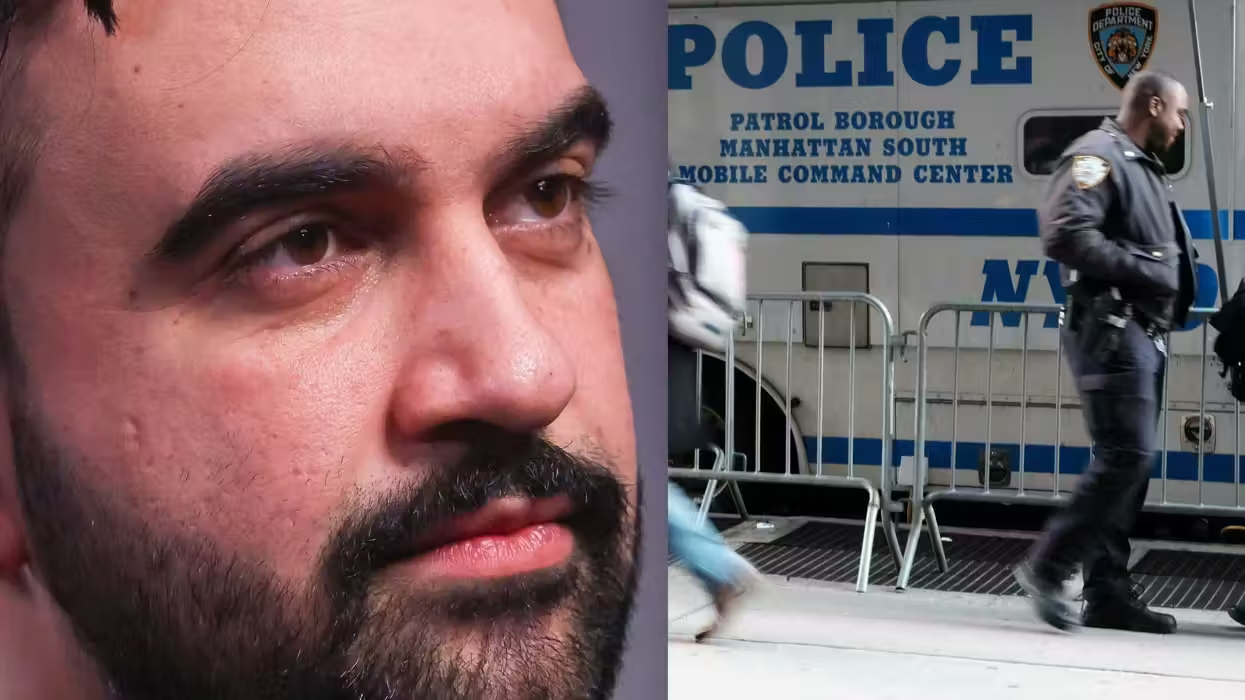© 2026 Blaze Media LLC. All rights reserved.
Ariz. Gov. Jan Brewer: "A victory for the rule of law."
The U.S. Supreme Court voted to strike down three of four provisions in Arizona's controversial immigration law, ruling in favor of the federal government.
However, justices upheld the so-called "show me your papers" provision that requires police in Arizona to check an individual's immigration status if there is "reasonable suspicion" the person is in the U.S. illegally.
Even there, though, the justices said the provision could be subject to additional legal challenges.
Though the decision upholds the most controversial part of the law for the moment, it takes the teeth out of it by prohibiting police officers from arresting people on minor immigration charges.
Justice Kennedy wrote the opinion for the court that was unanimous on allowing the status check to go forward. The court was divided on striking down the other portions.
"Discretion in the enforcement of immigration law embraces immediate human concerns," Kennedy said in the Supreme Court opinion. "Unauthorized workers trying to support their families, for example, likely pose less danger than alien smugglers or aliens who commit a serious crime. The equities of an individual case may turn on many factors, including whether the alien has children born in the United States, long ties to the community, or a record of distinguished military service. Some discretionary decisions involve policy choices that bear on this Nation's international relations."
The provisions that made it a crime for immigrants to seek work without work permits, to not carry their immigration papers and allowed law enforcement to arrest individuals they suspect committed crimes that would require their deportation were all struck down indefinitely, Fox News reports.
Read the entire SCOTUS opinion here.
Part of the ruling was based on the notion that states can't pursue policies that undermine federal law. Under the Constitution, the federal government is given the authority to enforce immigration policy, not the states.
Arizona Gov. Jan Brewer released a statement shortly after the ruling calling today's decision by the Supreme Court "a victory for the rule of law." More from the governor's statement:
It is also a victory for the 10th Amendment and all Americans who believe in the inherent right and responsibility of states to defend their citizens. After more than two years of legal challenges, the heart of SB 1070 can now be implemented in accordance with the U.S. Constitution.While we are grateful for this legal victory, today is an opportunity to reflect on our journey and focus upon the true task ahead: the implementation and enforcement of this law in an even-handed manner that lives up to our highest ideals as American citizens. I know the State of Arizona and its law enforcement officers are up to the task. The case for SB 1070 has always been about our support for the rule of law. That means every law, including those against both illegal immigration and racial profiling. Law enforcement will be held accountable should this statute be misused in a fashion that violates an individual’s civil rights.
Of course, today’s ruling does not mark the end of our journey. It can be expected that legal challenges to SB 1070 and the State of Arizona will continue. Our critics are already preparing new litigation tactics in response to their loss at the Supreme Court, and undoubtedly will allege inequities in the implementation of the law. As I said two years ago on the day I signed SB 1070 into law, ‘We cannot give them that chance. We must use this new tool wisely, and fight for our safety with the honor Arizona deserves.
Justin Cox, a staff attorney with the ACLU Immigrants Rights Project, also released a statement on the Supreme Court's ruling on SB 1070. He said they "won" on three of four provisions and the "fight continues" to overturn the fourth provision.
“We’re obviously still reading the opinion right now, but I think I general it’s not everything that we wanted, but it does go a long way towards reinforcing what we’ve been saying all along, which is immigration is a federal issue and the states have , there’s very little that a state can do constitutionally to affect immigration," the statement read.
"They didn’t say that the show me your papers provision is legal, they just said that the reasoning and basis that the lower court ruled to keep it preemptive was not adequate."
The state has geared up for massive protests in preparation of the Supreme Court ruling. Both supporters and staunch critics of the law have reportedly planned protests at the Arizona State Capitol building.
Brewer recently issued a two-page executive order essentially telling the Arizona Peace Officer Standards and Training Board to redistribute a training DVD for SB 1070.
The videos are to be distributed to all law enforcement agencies across the Arizona. The DVD discusses everything from reasonable suspicion to foreign vehicle registration.
A major point is made in the video instructing officers to not racially profile. It also includes types of acceptable identification that should end an officer's suspicions about a person's immigration status.
SB 1070 was passed two years ago and signed into law by Governor Brewer. The move sparked a massive debate and legal challenges which have ultimately led to the Supreme Court.
As many news reports have indicated, the ruling is hardly the end to the heated immigration debate, but rather just the latest development in an ongoing political battle.
The Associated Press contributed to this report.
This is a breaking story and updates will be added.
Want to leave a tip?
We answer to you. Help keep our content free of advertisers and big tech censorship by leaving a tip today.
Want to join the conversation?
Already a subscriber?
more stories
Sign up for the Blaze newsletter
By signing up, you agree to our Privacy Policy and Terms of Use, and agree to receive content that may sometimes include advertisements. You may opt out at any time.
Related Content
© 2026 Blaze Media LLC. All rights reserved.
Get the stories that matter most delivered directly to your inbox.
By signing up, you agree to our Privacy Policy and Terms of Use, and agree to receive content that may sometimes include advertisements. You may opt out at any time.







